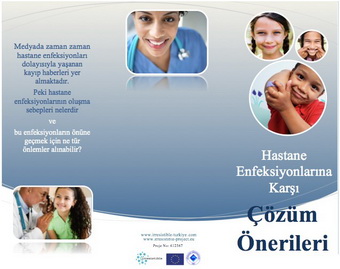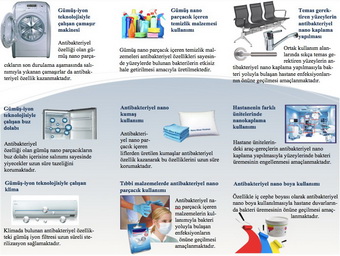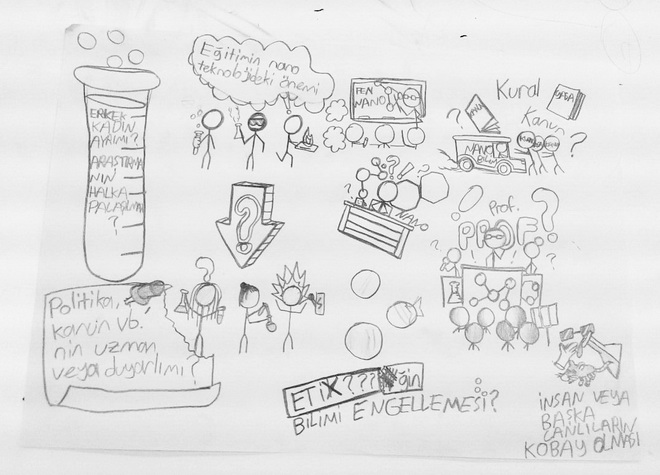In the first lesson of the module, based on the imaginary scenario, a brochure that introduces the probable nano silver products is given to the students (see below). A hospital that is on the face of deciding on adapting such products establishes a committee to explore the benefits and risks of such products.
Then, students are asked if a hospital committee should accept or reject using the nano silver products at the hospital to prevent the cross infections. Students are also asked to consider who should take part in this committee and why. Students specifically discuss about who should decide on the use of silver nanoparticles in the health sciences, in daily life products, and in the public spaces.


The brochure including suggestions for prevention of the cross infections in hospitals.
Moreover, in the seventh lesson of the module, students practically confront with the significance of open access for the first time, while they are searching for the use and the risks of some other nanoparticles such as gold, silica, and iron nanoparticles. They also face with the difficulty of finding sources in their mother language during developing a product for exhibition.
Students discuss about the ethical issues associated with the release of silver nanoparticles into nature, the permanency of anti-bacterial effect of nano products, the risks of silver and other nanoparticles over health (human and other living creatures), and honesty of scientists and governments about sharing the results of a scientific research.
Governance is addressed by considering the issues like waste management (e.g., the release of nano silver particles due to washing of nano silver textiles), certificating and regulating the commercial distribution of certain products by various relevant agencies (health, environment, etc.)
The last lesson of the module focuses specifically on the key aspects of RRI with discussions. Students specifically discuss about the crucial role of gender equality, science education, ethics, engagement, open access and governance. Students both discuss in a group and as a class questions like “Do you think that accessibility of information and studies in the field of nanotechnology is important? Why?”, “Is it necessary for researchers to follow ethical aspects while conducting a research for the developments in the field of nanotechnology?”, “Does science education raise the public awareness of nano products or nanotechnology studies? Why?” and etc.
All lessons of the module encourage group work with the emphasis of collaborative work in the nature of science. Instructors, therefore, regards the number of male and female students while establishing the groups.

One of the student’s drawing about the RRI aspects.








